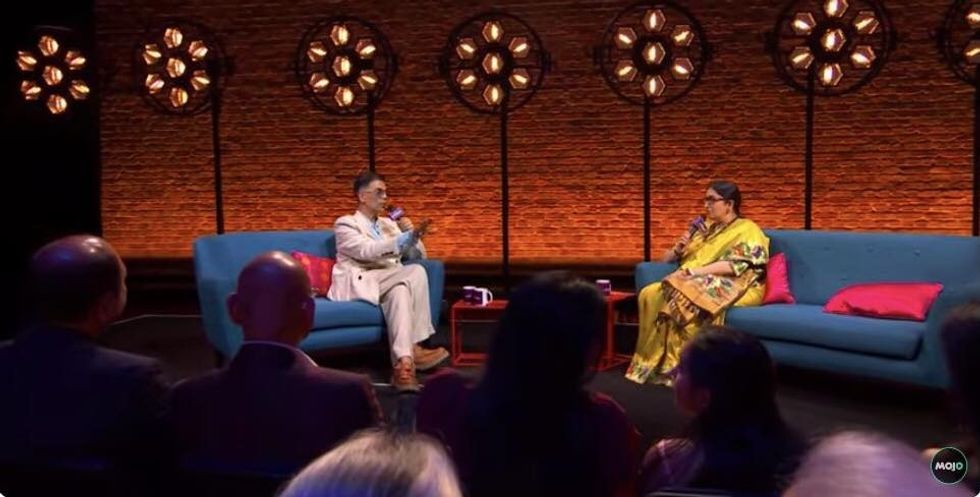By S Neeraj Krishna
THE subject of “unconscious bias training” for British lawmakers has triggered a debate, with some Tory MPs terming it “woke agenda” and “nonsense”, and a leading anti-racism campaigner wanting it to be made mandatory.
News reports on Monday (21) said about 40 Conservative MPs were expected to shun the training sessions offered to the House of Commons.
Crossbench peer Simon Woolley said he was “appalled” at MPs rejecting the training, adding that “push back on this demonstrates their inability to move to the 21st century”.
The former chair of the UK race disparity unit’s advisory group, who founded Operation Black Vote, urged political parties to make the training mandatory for their parliamentarians.
“For all parliamentarians, this is the lowest hanging fruit to understand our own inbuilt prejudices,” Woolley told the Guardian.
“I am appalled that so many MPs, from whatever party, would refuse to do this training. I expect all politicians to undertake the unconscious bias training, if asked, and hope they would view it as something which should enable them to better do their job.
“Particularly following the Black Lives Matter movement, we need all our parliamentarians to make an honest appraisal about our often-inbuilt prejudices. It would help them be better politicians.
“So, I’m really astonished why any MP would refuse to do this training. I would expect that party leadership, of any party, would say this training is not an option and, thereby, show leadership.”
Woolley’s observations came as Tory MP for Mansfield, Ben Bradley, slammed the pilot project and called on fellow lawmakers to boycott it.
“In my view we should be unabashed in our cultural conservatism, sticking up for free speech and the right to ‘make my own bloody mind up, thank you very much’, and stepping in to block this ‘unconscious bias’ nonsense,” he said.
In response, Woolley said he would “promise” Bradley and “anyone else that done honestly he’d have everything to gain and nothing to lose”.
“All my experience of companies and institutions who have engaged with this training is that they have come out the other side saying it was extremely helpful,” he added.
Bradley countered, saying: “His [Woolley’s] insistence that it [unconscious bias training] should be made mandatory and I should be forced against my will only serves to further evidence my point about the nature of the training.”
Some residents in Bradley’s constituency, who spoke to the Guardian, opined that the MP need not be stubborn over the push back.
“I think it’s a little bit short-sighted… training can’t really hurt, can it?” asked Sue Burrell, 55, an account manager at a training provider.
Alisha, 16, said if political leaders “educate themselves then they can educate others”.
“Not all racism is overt and I think lots of people in my generation get that,” she added. “It wasn’t really a thing in Mansfield but I saw lots of people I know joining the protests in Nottingham in the summer.”
Jeff Rowland, 70, suggested that “anti-racism awareness” could help the MP, whose town had a relatively small minority ethnic population.
“If at least Mr Bradley does [the training] and gets some idea of how things can be systemic, he could actually take that and use it when people [make generalisations] in meetings with constituents,” he added.
Counterviews, too, emerged. “Bradley fan” Adrian Shorthouse, 66, for instance, said it was “his choice if he does the training or not”.
Bradley said social media comments from constituents on his stance were “overwhelmingly supportive”, adding that he received over 150 emails backing him and “zero negative ones”.
As the debate heated up, Labour leader Keir Starmer pledged to attend the training along with his party MPs.
The Conservative Party said its MPs were earlier asked to undergo a “valuing everyone” training, which focused on subjects such as harassment, bullying and sexual misconduct.
“All cabinet ministers have either completed the training or have made arrangements to do so,” added a spokesperson, who avoided commenting specifically on the unconscious bias training issue.
A spokesman for the House of Commons said the training sessions made available on request to members “on a small pilot basis” received “positive feedback”.
“These are not mandatory, and the pilot is expected to be completed in the next few weeks,” he added.














 Karan Johar and Smriti Irani
Karan Johar and Smriti Irani

